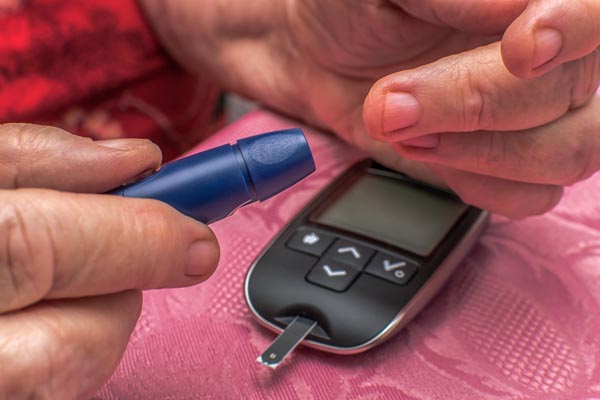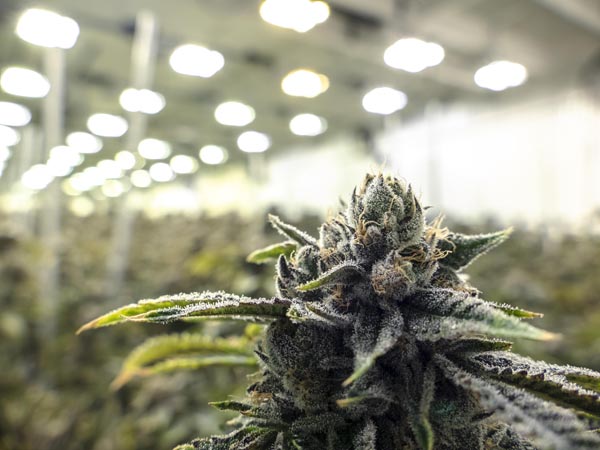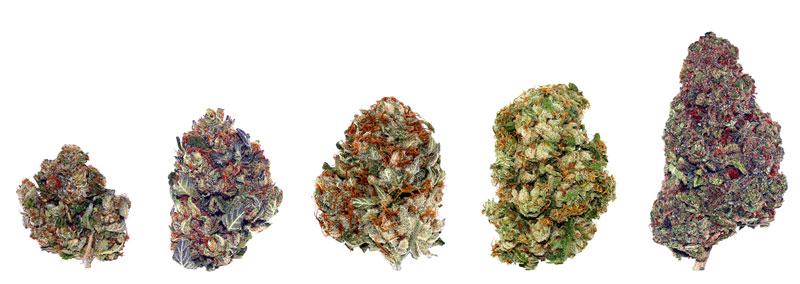Type 2 Diabetes
Dealing with the symptoms of diabetes can feel like a daily battle for your life.
 From constantly worrying about your blood sugar levels, to being paranoid about missing your next meal or forgetting to take medication, diabetes leaves many people feeling isolated and alone in their daily struggle with this ailment.
From constantly worrying about your blood sugar levels, to being paranoid about missing your next meal or forgetting to take medication, diabetes leaves many people feeling isolated and alone in their daily struggle with this ailment.
If you feel alone in your diabetic battle or have a loved one who does, we here at Kanteeva want you to know that this is not the case. In fact, according to the International Diabetes Federation, over 463 million people, or 9% of the world’s population, are living with diabetes.
Of those 463 million people, 90% are suffering from type 2 diabetes.
There is no cure for type 2 diabetes and treatment options typically focus on managing the symptoms of the disease. The positive news is that type 2 diabetes is more understood than ever before and research is still ongoing.
One area that has been showing promise in recent years is medical cannabis.
Is medical cannabis an option for helping to treat the symptoms of type 2 diabetes?
In this article, we are going to look at some of the common symptoms of type 2 diabetes and how medical cannabis affects those symptoms. It is our goal to provide you with the information that you will need to make an educated decision on whether medical cannabis is an option for your individual needs or the needs of your loved ones.
After reading this article, you should have a basic understanding about medical cannabis and type 2 diabetes so that you can further discuss your options with your healthcare provider(s). If you have any additional questions or concerns, please leave them in the comments area below and a Kanteeva team member will respond back to you as soon as possible.
What is Type 2 Diabetes?
Diabetes is one of the biggest global health crises of the 21st century.
– Dr. Margaret Chan – Former Director General of the World Health Organization
The Mayo Clinic defines type 2 diabetes as:
a chronic condition that affects the way your body metabolizes sugar (glucose) — an important source of fuel for your body.
This definition provides a very brief explanation for a very confusing and complex disease process. The most important thing to know for the purposes of this article is that type 2 diabetes occurs when the cells of your body become resistant to insulin. Insulin is a hormone that is naturally produced by the pancreas and its function is to regulate the amount of glucose in the bloodstream.
This insulin resistance continues to worsen and causes your body to be unable to process glucose, aka the sugars, contained in food. This ultimately results in glucose building up in your bloodstream and wreaking havoc on your body’s various systems.
If you would like more information about how type 2 diabetes affects your body’s ability to process sugar please take a moment to watch the video below.
Complications of Type 2 Diabetes
While type 2 diabetes itself can make life very challenging, the complications of the disease when left untreated, or not treated consistently, can progress to serious and even life-threatening conditions like:
- Blindness
- Hearing impairment and hearing loss
- Kidney disease and failure
- Nerve damage (neuropathy)
- Skin conditions and infections
- Amputations of fingers, toes and legs
- Heart disease and failure
- Stroke
Many health care providers agree that early detection and subsequent early treatment of type 2 diabetes is key to managing the progression of the ailment.
One study conducted by the University of Michigan, the University of Cambridge and the Medical Research Council showed that early screening and treatment led to a reduced risk of heart disease or death within a five-year period when compared to people who received no screening.
Sadly, according to a report published by the World Health Organization, in some countries up to 62% of people living with type 2 diabetes are undiagnosed.
Is There a Cure for Type 2 Diabetes?
Unfortunately, type 2 diabetes is a chronic and progressive disease. There is currently no cure for type 2 diabetes. However, some people find that they can reverse the disease process with the right treatment and are able to keep the symptoms, as well as complications, at bay for a sustained period of time.
It is important to remember that even though you may be able to avoid diabetic medications for a while, type 2 diabetes is an ongoing progressive disease that never completely goes away.
Thankfully, current scientific research strives to find a biological cure for this ailment and we now know more than ever before about type 2 diabetes.
Hopefully, one day there will be a way to successfully treat and ultimately eliminate this disease that is available to the masses. In the meantime, all health care providers and patients can do is try to limit the overall negative effects of the ailment and keep it in reversal, or close to it, for as long as possible.
How is Type 2 Diabetes Currently Treated?
It’s all about maintaining good blood-sugar control when you have diabetes.
- Dr. Robert Gabbay, MD, PhD – Joslin Diabetes Center (via Boston Magazine)
The approach to treating type 2 diabetes is slightly different than the processes used to treat many other ailments by modern medicine. There are some medications available to help treat the symptoms of type 2 diabetes and health care providers will often encourage you to do several things like:
- Lose weight if needed
- Begin eating healthy
- Start exercising regularly
- Possibly start diabetes medication or insulin therapy
- Start monitoring your blood sugar levels
- Possible bariatric surgery for some people
It is important to always remember that the treatment for type 2 diabetes is very individualized. Your treatment regimen may be very different than someone else’s. Your healthcare provider(s) will help you come up with your own personalized treatment options that will depend on your unique condition and symptoms.
When it comes to medication, there are a few different options that are frequently prescribed:
- Metformin - (Glucophage, Glucophage XR, Fortamet, Glumetza, Riomet, others)
- Sulfonylureas - (Diabinese, Glynase, Amaryl, Glucotrol, DiaBeta, Glipizide XL, others)
- Meglitinides - (Prandin, Starlix)
- Thiazolidinediones aka Glitazones - (Avandia, Actos)
- DPP-4 inhibitors - (Onglyza, Januvia, Nesina, Tradjenta)
- GLP-1 receptor agonists - (Byetta, Bydureon, Victoza) [NOTE: must be injected.]
- SGLT2 inhibitors - (Invokana, Invokamet, Xigduo, Qtern, Jardiance, others)
- Insulin
Typically, most people begin their medication regimen with Metformin and add additional medications as their type 2 diabetes progresses. Some people can avoid medication for a while by successfully managing their blood sugar levels through lifestyle changes.
The Cost of Type 2 Diabetes
 One of the biggest issues that people suffering from type 2 diabetes face is the cost of managing the ailment. According to the World Health Organization, it is estimated that the annual cost of treating diabetes worldwide is more than $827 billion.
One of the biggest issues that people suffering from type 2 diabetes face is the cost of managing the ailment. According to the World Health Organization, it is estimated that the annual cost of treating diabetes worldwide is more than $827 billion.
While that number is a global expense, the cost of managing type 2 diabetes can be overwhelming for many people. When you factor in all of the supplies and medications associated with type 2 diabetes it becomes easy to see how Healthline estimated that people with all types of Diabetes spend $16,750 USD per year on medical expenses related to the ailment.
It is also important to consider that the numbers listed above do not factor in the expenses of eating a healthier diet, which can often be substantially more expensive than most monthly grocery budgets.
With the high expenses and potential complications associated with type 2 diabetes, many people try to find any additional or supplemental therapies that may help with treating this disease.
One potential therapy option that has been gaining popularity in recent years is medical cannabis.
Can Medical Cannabis Help Treat Type 2 Diabetes?
 As with many other ailments, there is still scientific research that must be completed before we can determine how effective medical cannabis may be for treating the symptoms associated with type 2 diabetes.
As with many other ailments, there is still scientific research that must be completed before we can determine how effective medical cannabis may be for treating the symptoms associated with type 2 diabetes.
Preliminary studies show promising results and many members of the medical cannabis community have shared testimonials about successfully treating some of the symptoms of type 2 diabetes with medical cannabis therapy.
While we here at Kanteeva always encourage you to speak to your healthcare provider(s) before starting any type of cannabis therapy, it is extremely important to do so when it comes to type 2 diabetes as not all cannabis strains or products will deliver the same benefits.
Some recreational cannabis users have found that the consumption of certain varieties of cannabis can be detrimental when it comes to the regulation of insulin levels.
For this reason, if you are considering medical cannabis as an option for helping to treat the symptoms of type 2 diabetes, it is crucial that you discuss your options with your healthcare provider(s) before using cannabis.
If you would like more information about the potential dangers of recreational cannabis and diabetes, please read the Diabetes Canada Position Statement.
With that being said, there have been many people among the medical cannabis community who claim that cannabis has been able to help them greatly when it comes to managing the symptoms of type 2 diabetes. One advocacy group, the American Alliance for Medical Cannabis, published a research paper that suggests medical cannabis may help:
- Stabilize blood sugar levels
- Prevent neuroinflammation (inflammatory response of the nerves and nervous system
- Relieve neuropathic pain, the most common complication of type 2 diabetes
- Suppress arterial inflammation
- Help keep blood vessels open, improving blood circulation
- Lower blood pressure over time
- Provide relief from muscle cramps
- Provide relief from the pain associated with gastrointestinal (GI) disorders
- Relieve tingling in the hands and feet
While most of the claims in this paper are anecdotal, there have been some scientific studies conducted into the effects of medical cannabis on the symptoms of type 2 diabetes.
What Does Science Say About Medical Cannabis and Type 2 Diabetes?
 As briefly mentioned above, additional research needs to be conducted to determine the effects that medical cannabis has in regards to type 2 diabetes. However, preliminary studies are showing that medical cannabis can be effective at helping to alleviate some of the many symptoms associated with type 2 diabetes, as well as possibly helping to prevent the disease from developing in the first place!
As briefly mentioned above, additional research needs to be conducted to determine the effects that medical cannabis has in regards to type 2 diabetes. However, preliminary studies are showing that medical cannabis can be effective at helping to alleviate some of the many symptoms associated with type 2 diabetes, as well as possibly helping to prevent the disease from developing in the first place!
How Medical Cannabis May Help Treat Some Complications Associated With Type 2 Diabetes
Type 2 diabetes has numerous potential complications that are associated with the ailment. To understand the potential benefits of medical cannabis in treating some of these complications, we must look at some of the studies that have been conducted for each complication.
Nerve Pain (diabetic peripheral neuropathy)
One of the most common issues that many people suffering from type 2 diabetes face is nerve pain in the extremities, especially in the feet.
This nerve pain, called diabetic peripheral neuropathy, can be excruciating for those suffering from it. Medical cannabis has been shown in multiple studies to help alleviate chronic pain and this study from 2015 showed preliminary evidence that supports further research on the efficacy of cannabinoids in diabetic peripheral neuropathy.
Another study published in 2017 showed the effectiveness of cannabis for reducing nerve inflammation by stimulating CB2 receptors throughout the body and brain. This reduction in inflammation may help to alleviate the pain associated with flare-ups caused by diabetic peripheral neuropathy.
Blindness (diabetic retinopathy)
One of the complications of having high levels of blood sugar is damage to blood vessels throughout your body.
Sadly, one of the most common areas that blood vessel damage can occur is in the retina. This is a part of the eye that receives light and communicates various visual signals to your brain. When excessive levels of blood glucose begin to cause damage to the blood vessels in the eye, a condition known as diabetic retinopathy begins to develop.
This condition is very common among those suffering from type 2 diabetes. In fact, according to a study published in 2010, diabetic retinopathy is listed as the leading cause of vision loss in adults aged 20 – 74 years in Western countries.
While more evidence is needed on how cannabis may be able to help people suffering from type 2 diabetes prevent diabetic retinopathy, one study published in 2016 that was conducted on rats with diabetic retinopathy showed that:
Treatment with CBD prevented two functional components of diabetic retinopathy—vascular permeability and neural cell death.
Again, more research is needed on how cannabis therapy may affect people suffering from diabetic retinopathy but studies like the one listed above show promise that cannabis may hold the key to helping prevent the blindness commonly associated with type 2 diabetes.
Kidney Disease and Kidney Failure (diabetic nephropathy)
Another common issue that many people suffering from type 2 diabetes face is complications involving their kidneys.
While there has not been very much research conducted into the effects of cannabis on kidney health, one study conducted in 2016 on mice with Type 2 Diabetic nephropathy concluded:
These results suggest that CB2 agonism is a potential option to be added to the available therapeutic armamentarium for type 2 diabetic nephropathy.
We are still a long way away from understanding exactly how phytocannabinoids (the cannabinoids contained naturally in the cannabis plant) affect the endocannabinoid system in our bodies, but this preliminary study does suggest that more research may be able to help those suffering from diabetic nephropathy in the future.
Cardiovascular and Circulatory Complications
Perhaps the most dangerous complications that those suffering from type 2 diabetes face are the ones involving the cardiovascular and circulatory systems of the body.
Issues like the amputations of fingers, toes and legs, heart disease and failure and stroke, are all complications that essentially involve the cardiovascular and circulatory systems.
In recent years, multiple studies that have been conducted on rodents have shown that cannabis may be able to:
Once again, more research needs to be conducted before any conclusions can be drawn on how cannabis may be able to help alleviate some of the complications associated with type 2 diabetes.
The positive news is that the preliminary data that has been collected on how medical cannabis may be able to help those suffering from some of the complications of type 2 diabetes gives us hope that in the future people will be able to find relief from some of the many complications associated with type 2 diabetes.
Can Medical Cannabis Help Prevent Type 2 Diabetes?
 It is commonly agreed upon in the medical community that the best treatment for type 2 diabetes is preventing the disease in the first place.
It is commonly agreed upon in the medical community that the best treatment for type 2 diabetes is preventing the disease in the first place.
Unfortunately, no one knows exactly what causes type 2 diabetes. However, according to the Mayo Clinic, genetics and environmental factors like being overweight and inactive seem to be contributing factors to developing the ailment.
As mentioned in the section “Complications of type 2 diabetes,” many health care providers agree that early detection and subsequent early treatment is key to managing the progression of the ailment. In some cases, an early form of the ailment can be detected before it fully develops into type 2 diabetes.
This earlier form of the ailment is called prediabetes and according to the CDC:
Prediabetes is a serious health condition where blood sugar levels are higher than normal, but not high enough yet to be diagnosed as type 2 diabetes.
If you have been diagnosed with prediabetes, it is possible to prevent type 2 diabetes from fully developing by making lifestyle changes and by working with your healthcare provider(s). Taking appropriate preventative action can lower your risk of developing type 2 diabetes by as much as 58%, according to the CDC.
Starting a medical cannabis regimen during this phase of the ailment may be beneficial. One study conducted in Québec, Canada concluded that cannabis use is associated with lower fasting insulin levels in obese populations. Those who were consuming cannabis throughout their lifetime showed significantly lower insulin levels and these lower insulin levels persisted independently from the duration of time since they last used cannabis.
Another study from 2016 showed that the cannabinoid THCV significantly decreased fasting blood glucose levels and improved pancreas function. The study went on to conclude:
THCV could represent a new therapeutic agent in glycemic control in subjects with type 2 diabetes.
Lastly, studies have been conducted that show the THCV cannabinoid found in cannabis may be able to help reduce body weight.
The Important Takeaway from Current Studies
 The one key thing that many healthcare providers, researchers and experts can agree on is that more research needs to be completed before a conclusion can be drawn on the efficacy of medical cannabis in regards to treating type 2 diabetes.
The one key thing that many healthcare providers, researchers and experts can agree on is that more research needs to be completed before a conclusion can be drawn on the efficacy of medical cannabis in regards to treating type 2 diabetes.
For this reason, if you are considering adding a medical cannabis regimen to your type 2 diabetes or prediabetes therapy, it is crucial that you discuss all your options with your healthcare provider(s) before trying to use medical cannabis on your own.
As mentioned above, many popular cannabis strains could potentially be very detrimental to your therapy plan.
With that being said, many other cannabis strains may be able to help your symptoms substantially but you must know what types of cannabis you are looking for.
When looking at the studies that are currently available, the types of medical cannabis that you may need can vary greatly based on your unique individual symptoms.
This is where communicating your needs with your healthcare provider(s) will be beneficial. They can help you look at all the evidence currently available and make an educated decision based on your unique needs.
It is crucially important to realize that some strains of cannabis are shown to be detrimental to your goals of alleviating type 2 diabetes or prediabetes symptoms.
With that in mind, while we wait for additional research, we must look at the studies that are available now, as well as anecdotal evidence shared by people in the medical cannabis community. While many patients have found success using medical cannabis in their type 2 diabetes and prediabetes therapy plans, others have had challenges.
One of the main reasons that people struggle to find optimal success with medical cannabis therapy is due to lack of knowledge and misinformation in regards to finding the best medical cannabis strains that are available to help treat their unique symptoms.
By looking at existing studies and recommendations from members of the medical cannabis community, you can have the knowledge needed to further discuss potential medical cannabis strains with your healthcare provider(s).
What Are the Best Cannabis Strains for Type 2 Diabetes and Prediabetes?
It is important to note that the best cannabis strains for your unique needs may vary significantly depending on the severity and progression of your type 2 diabetes or prediabetes symptoms.
When looking at the studies we have available now, as well as the anecdotal evidence given by members of the medical cannabis community, there are two completely different strain profile recommendations that will depend on your unique needs.
If you are trying to regulate your blood glucose levels, suppress your appetite and increase your pancreatic health then you should be looking for strains that have very high concentrations of THCV, as evidenced by studies listed above. This is typically the case for those diagnosed with Prediabetes or those who are diagnosed with type 2 diabetes very early in the disease process.
However, if you are trying to combat some of the many complications associated with type 2 diabetes like diabetic neuropathy, blindness, kidney and heart health, then based on the studies above, you should be looking for cannabis strains that are high in CBD. This is typically the case for those who may be further along in the progression of the disease process.
Since each of these strain profiles are so different, we have separated the recommended strains into two separate categories below.
We base these strain recommendations on testimonials from medical cannabis community members, anecdotal research, scientific research and a variety of other factors like accessibility.
If you have any questions about specific strains, please do not hesitate to ask them below and a Kanteeva team member will get in touch with you as soon as possible. Also be certain to discuss your options with your healthcare provider(s) to ensure you have the most success possible when it comes to picking medical cannabis strains.
What are the Top Strains for Prediabetes?
Tangie
This Sativa Dominant Hybrid strain is very popular among the medical cannabis community for helping control blood glucose levels. It has high THCV concentrations and many medical cannabis patients report that it creates an uplifting and euphoric experience which leaves you feeling energetic and focused. Thanks to its overall popularity it is available in most areas. If you are new to medical cannabis be careful not to overindulge with this strain as it has been known to cause anxiety and paranoia due to its very high THC content.
Durban Poison
This potent Sativa landrace strain has high levels of both THC and THCV. It has been known among the medical cannabis community for years to deliver a creative and energetic high that suppresses your appetite. Many medical cannabis community members claim to use this strain during the day to help them get in shape and stay focused. Thanks to it being a popular landrace strain, Durban Poison can be found in most areas. Beginners should be careful with this strain however, as its potent THC content can leave you feeling paranoid and anxious when consumed in excess.
Doug’s Varin
This rare Sativa strain was bred to have exceptionally high levels of THCV. Based on existing research, this makes it an ideal choice for regulating blood glucose levels, appetite suppression and weight loss. However, the rarity of this strain can make it challenging to find in many areas. If you are able to find Doug’s Varin in your area, you can expect an energetic high that suppresses your appetite without causing brain fog, according to medical cannabis community members.
What are the Top Strains for Type 2 Diabetes Complications?
Harlequin
This Sativa Dominant Hybrid is frequently mentioned in the medical cannabis community for helping to treat symptoms and complications associated with type 2 diabetes. It has a very high CBD content and low THC content, making it a great choice for many people for daytime use. Harlequin is available in most areas and has a low negative effect profile, making it a popular choice among newcomers to medical cannabis.
Cannatonic
This 50/50 Hybrid strain is frequently referred to as one of the top medical cannabis strains available. It has high CBD content and a low THC content, making it a great choice for daytime use without producing strong psychoactive effects. Many patients in the medical cannabis community claim that Cannatonic is a great strain for neuropathy and inflammation. It is also a popular strain among people suffering from type 2 diabetes.
Pennywise
This Indica Dominant Hybrid is popular among the medical cannabis community for helping to treat several different ailments. It typically has a 1:1 ratio of THC to CBD that ranges from 12% to 15% THC and CBD content. It has a low negative effect profile that makes it a popular choice among beginners to medical cannabis. As a result of its increasing popularity, Pennywise is available in most areas. Many medical cannabis patients who suffer from type 2 diabetes claim that Pennywise is great for relieving neuropathic pain and inflammation.
Final Thoughts
 Living with type 2 diabetes can make every moment of your life feel like a constant balancing act. Thankfully, ongoing research has given more treatment options than ever before that can help you worry less and enjoy your life more.
Living with type 2 diabetes can make every moment of your life feel like a constant balancing act. Thankfully, ongoing research has given more treatment options than ever before that can help you worry less and enjoy your life more.
There have been thousands of people who have used medical cannabis to help manage the symptoms of type 2 diabetes and prediabetes.
If you are interested in starting a medical cannabis program for the symptoms of your type 2 diabetes or prediabetes, we strongly suggest that you speak with your healthcare provider(s) and join the Kanteeva community for helpful information from other patients and practitioners.
We Want to Hear from You

Have you or a loved one found relief from type 2 diabetes or Prediabetes by using medical cannabis? If you have, we would love to hear from you!
Please help us spread the word about the amazing benefits that medical cannabis patients are finding all over the world by becoming part of the Kanteeva community.
With your help, thousands of others could finally find relief too.
Please share your stories, comments, and questions below. If you are a medical cannabis patient please also mention what strain has been effective at helping you find relief.
Thank you for taking the time to read this article, we look forward to hearing your story soon!
Learn. Share. Connect.
